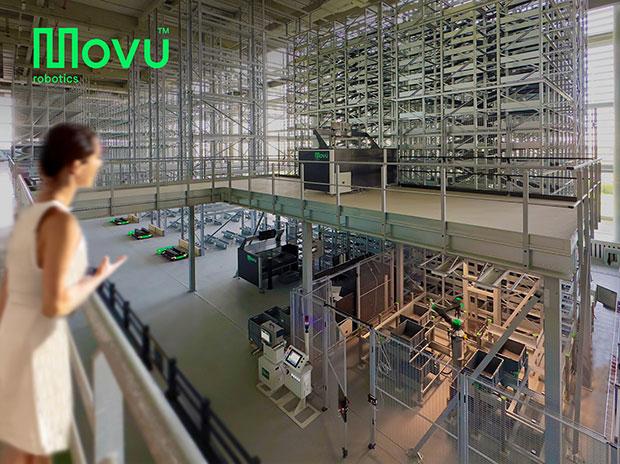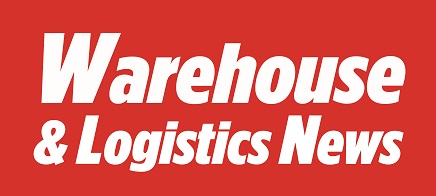By Stefan Pieters – CEO – Movu Robotics (formerly known as stow Robotics): The automation boom in logistics wasn’t just a pandemic phenomenon. The steady trend towards e-commerce and last-mile delivery during the 2010s found itself unexpectedly accelerated by the response to the virus in March 2020, with online shopping and ecommerce growing overnight. Warehouses were left scrambling to reorientate their systems so they could cater for the individual items bought by shoppers, rather than the pallets of goods bought in bulk by shops – all whilst reducing close contact between workers. Ten years of e-commerce development was packed into a mere three months, according to leading US consultancy McKinsey.
 As the world returned to normality, supply chains’ flows recommenced and social distancing measures fell away, many expected the pace of innovation and automation in the industry to return to pre-pandemic levels. Instead, the e-commerce sector accounts for 95 of the 1000 fastest growing companies in Europe according to the FT’s 2023 list, thanks to continuing levels of demand and vital support from private capital enabling firms like ours to scale up.
As the world returned to normality, supply chains’ flows recommenced and social distancing measures fell away, many expected the pace of innovation and automation in the industry to return to pre-pandemic levels. Instead, the e-commerce sector accounts for 95 of the 1000 fastest growing companies in Europe according to the FT’s 2023 list, thanks to continuing levels of demand and vital support from private capital enabling firms like ours to scale up.
The rise of e-commerce, combined with the recent continent-wide pressures of increasing labour costs, energy inflation, and the ballooning price of land has led to firms looking for increasingly sophisticated automated warehouse solutions to enhance their supply chain. However, the application of these solutions is often difficult, with most companies offering little flexibility. That’s why we’re upgrading the world’s warehouses with the power of easier automation.
From household names, such as our clients Tesco and Ikea, to expanding new players, firms are feeling the need to invest in automated solutions to increase productivity per square meter and to overcome labour scarcity. At Movu Robotics we have seen positive growth as a result, expanding by more than 70% compared to pre-pandemic levels since we began building our business with investment from Blackstone.
Our partnership has enabled Movu Robotics to invest in market-leading R&D, developing storage, retrieval and warehouse transport solutions that can make the most of our clients’ resources in a difficult economic environment. Automated pallet storage and retrieval systems like our self-powered Atlas 2D have completely changed the way our warehouses operate, allowing for storage denser than ever before. With customers now ordering smaller deliveries containing fewer items, we’ve had to come up with automated solutions like our e.scala that can work for bins, totes, and cartons too, ensuring that any place in a warehouse can be reached and every order retrieved.
The most exciting opportunities for upgrading the world’s warehouses with the power of easier automation, are in the application of artificial intelligence to fully integrate warehouse automations. Our new technology is helping to pioneer the first pallet-to-bin warehouse portfolio in the market, creating a seamless system capable of loading everything from full pallets to just a single item.
These technological developments aren’t just good for companies – they’re good for the planet too. With automated systems in place, the tricky task of cold storage becomes more environmentally friendly. Denser systems allow for the same capacity of goods to be stored in a smaller, more efficient space, meaning less energy is needed for keeping cargo cool. Our AI-powered Movu ifollow Autonomous Mobile Robot is capable of operating in temperatures as low as -25°C, so these changes can cut out costly heat loss from workers opening and closing doors too.
But big innovations require big investments to match. In 2021, the Group created a new unit named stow Robotics, a new unit dedicated to warehouse automation, and acquired cutting-edge logistics innovators ifollow and Raiser Robotics with the financial backing of our parent company, Blackstone. As the next step in our growth stow Robotics became Movu Robotics in September, strengthening the Group’s ability to meet increasing customer demand and launching our new picking arm robot Movu eligo, integrating robotic and manual picking operations.
Through Blackstone’s investment, we built a brand new 24,000m² automation campus in Lokeren, Belgium, which will home more than 300 robotics specialists, product designers, and engineers by the end of 2023. The investment has already begun to pay off, with Movu Robotics division seeing a 180% growth in new orders over the last year.
Innovation also means investing in people. Expensive facilities mean little if you aren’t also developing workers with the skills necessary to push the industry forward. The all-new Blackstone-financed Movu Robotics campus has already created over 200 jobs in Belgium, with on-the-job training and development opportunities for a young and diverse group of 75 workers aged between 21 and 30.
Traditional warehouse workers, long touted as the would-be casualties of automation, will be asking how they fit in. Counterintuitively, we have been finding that though the role of the average warehouse worker is changing, the personnel doesn’t have to. Instead, workers are becoming more productive and reducing their time carrying out tasks better shouldered by machines, such as walking the warehouse or searching for the right product. Good logistics automation is human-centric by design: intuitive warehouse systems allow for fast training and easy operation. In a tight labour market where it is increasingly hard to find employees, the increase in productivity of existing teams is a welcome relief.
The last three years have seen rapid industry change through automation. With the current surge in technological developments, logistics’ robotic revolution will continue to gather pace in the years to come. To meet those challenges the industry needs to partner our expertise with intelligent capital, as we have with Blackstone, to achieve the investment in places and people which helps us all thrive.




Comments are closed.